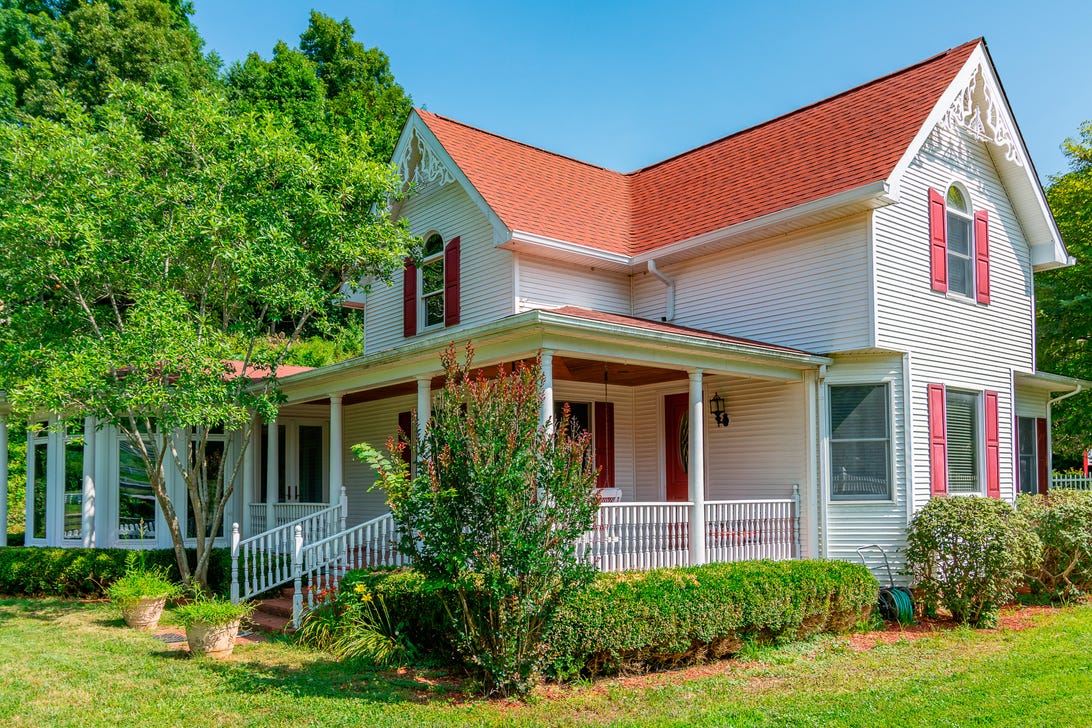
Mortgage rates today followed a split path, but an important rate dwindled. Average 15-year fixed mortgage rates inched upward, while average 30-year fixed mortgage rates trailed off. We also saw no adjustment in the average rate of 5/1 adjustable-rate mortgages. Mortgage interest rates are never set in stone, but interest rates are the lowest they've been in years. If you plan to finance a home, now might be an optimal time to secure a fixed rate. But as always, make sure to first take into account your personal goals and circumstances before purchasing a home, and compare offers to find a lender who can best meet your needs.
Compare countrywide mortgage rates from various lenders
30-year fixed-rate mortgages
The 30-year fixed-mortgage rate average is 3.05%, which is a decrease of 1 basis point compared to seven days ago. (A basis point is equivalent to 0.01%.) Thirty-year fixed mortgages are the most common loan term. A 30-year fixed rate mortgage will usually have a smaller monthly payment than a 15-year one -- but usually a higher interest rate. You won't be able to pay off your house as quickly and you'll pay more interest over time, but a 30-year fixed mortgage is a good option if you're looking to minimize your monthly payment.
15-year fixed-rate mortgages
The average rate for a 15-year, fixed mortgage is 2.35%, which is an increase of 1 basis point from seven days ago. You'll definitely have a higher monthly payment with a 15-year fixed mortgage compared to a 30-year fixed mortgage, even if the interest rate and loan amount are the same. However, as long as you're able to afford the monthly payments, there are several benefits to a 15-year loan. These usually include being able to get a lower interest rate, paying off your mortgage sooner and paying less total interest in the long run.
5/1 adjustable-rate mortgages
A 5/1 adjustable-rate mortgage has an average rate of 3.07%, the same rate compared to last week. For the first five years, you'll typically get a lower interest rate with a 5/1 ARM compared to a 30-year fixed mortgage. But shifts in the market might cause your interest rate to increase after that time, as detailed in the terms of your loan. If you plan to sell or refinance your house before the rate changes, an adjustable-rate mortgage might make sense for you. But if that's not the case, you could be on the hook for a significantly higher interest rate if the market rates change.
Mortgage rate trends
We use data collected by Bankrate, which is owned by the same parent company as CNET, to track rates changes over time. This table summarizes the average rates offered by lenders nationwide:
Today's mortgage interest rates| Loan term | Today's Rate | Last week | Change |
|---|---|---|---|
| 30-year mortgage rate | 3.05% | 3.06% | -0.01 |
| 15-year fixed rate | 2.35% | 2.34% | +0.01 |
| 30-year jumbo mortgage rate | 3.15% | 3.25% | -0.10 |
| 30-year mortgage refinance rate | 3.09% | 3.11% | -0.02 |
Rates accurate as of May 12, 2021.
How to shop for the best mortgage rate
You can get a personalized mortgage rate by connecting with your local mortgage broker or using an online calculator. Make sure to think about your current finances and your goals when searching for a mortgage. A range of factors -- including your down payment, credit score, loan-to-value ratio and debt-to-income ratio -- will all affect your mortgage rate. Having a higher credit score, a larger down payment, a low DTI, a low LTV or any combination of those factors can help you get a lower interest rate. Beyond the interest rate, other factors including closing costs, fees, discount points and taxes might also affect the cost of your house. You should talk to a variety of lenders -- including local and national banks, credit unions and online lenders -- and comparison shop to find the best mortgage loan for you.
What is a good loan term?
One important thing to consider when choosing a mortgage is the loan term, or payment schedule. The loan terms most commonly offered are 15 years and 30 years, although you can also find 10-, 20- and 40-year mortgages. Another important distinction is between fixed-rate and adjustable-rate mortgages. For fixed-rate mortgages, interest rates are fixed for the life of the loan. For adjustable-rate mortgages, interest rates are stable for a certain number of years (commonly five, seven or 10 years), then the rate changes annually based on the market rate.
When deciding between a fixed-rate and adjustable-rate mortgage, you should take into consideration how long you plan to stay in your house. For those who plan on living long-term in a new house, fixed-rate mortgages may be the better option. While adjustable-rate mortgages can sometimes offer lower interest rates upfront, fixed-rate mortgages are more stable in the long term. However you may get a better deal with an adjustable-rate mortgage if you only plan to keep your house for a couple years. There is no "best" loan term as an overarching rule; it all depends on your goals and your current financial situation. Be sure to do your research and understand what you want when choosing a mortgage.
"current" - Google News
May 12, 2021 at 06:00PM
https://ift.tt/3eFul4B
Current mortgage interest rates on May 12, 2021: Important rate eases - CNET
"current" - Google News
https://ift.tt/3b2HZto
https://ift.tt/3c3RoCk
Bagikan Berita Ini















0 Response to "Current mortgage interest rates on May 12, 2021: Important rate eases - CNET"
Post a Comment